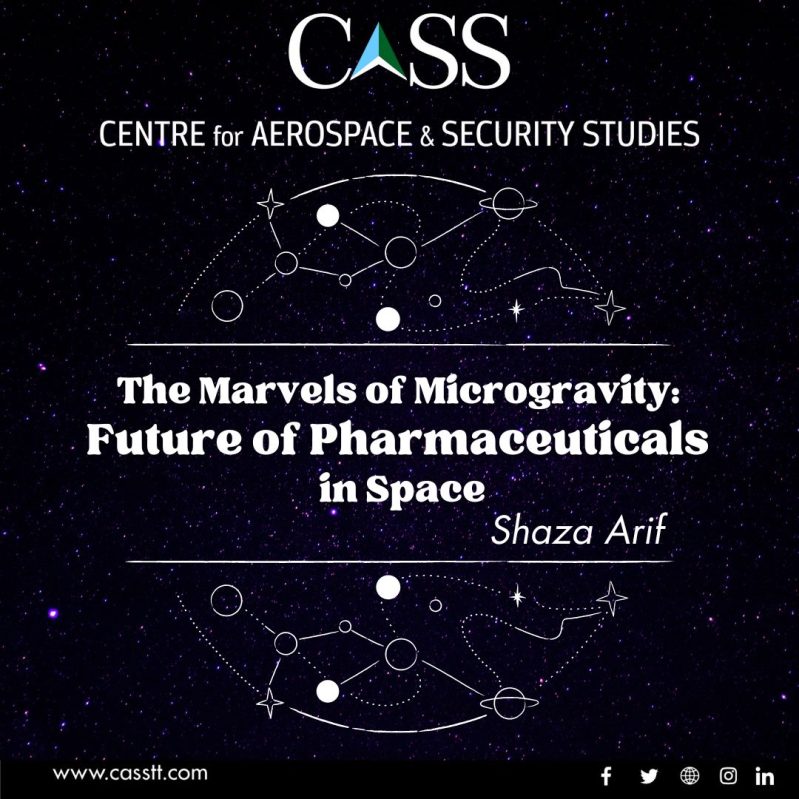Beyond the shimmering night sky lies a vast realm that holds considerable opportunities for us. While space has frequently made headlines for its contributions to communication, navigation, weather forecasting, disaster management, discovery of new planetary bodies etc., the unravelling of its infinite secrets continues to inspire us. Most recently, the role of space in the manufacture of pharmaceutical drugs has caught widespread attention, sparking excitement amongst the scientific and medical community equally.
Last week, Varda, a California-based startup, celebrated the deployment of its first satellite – W-Series 1 in orbit. The launch marks a fascinating endeavour of a space-based pharmaceutical factory. The objective is to explore the production of pharmaceuticals in outer space’s unique environment, aiming to achieve mass production of products that cannot be produced on Earth or could be developed rapidly with enhanced quality in microgravity conditions. The manufacturing process in space considerably alters the physical variable, which remains constant in any Earth-based lab. Varda’s first mission will conduct research on the development of ‘Ritonavir’, a drug used to treat HIV. The satellite, or ‘factory’ as it is termed, is the size of a yoga ball and is expected to spend around a month in space before it returns to Earth.
There are numerous potential benefits of the initiative. At its core, the idea is that protein crystals formed in space could have superior structures and prove much more effective than their counterparts developed on Earth where their formation process could be adversely impacted by gravity. Hence, by capitalising on the advantages offered by microgravity in the orbits leading to absence of convection currents, or particle clumping, the scientist could analyse the structures of the protein crystals more effectively and design medications to perfectly bind to them, resulting in exceptionally precise drug manufacture. As per Varda, the initiative has the potential to enable improved bioavailability, ensure an extended shelf-life, new intellectual property, and allow novel routes of drug administration.
It is important to note that the manufacturing does not encompass the production of final products, such as tablets or capsules, which involve binding agents and other additives. Instead, it refers to developing the active ingredient for medicinal use. It is claimed that the leukaemia immunotherapy drug ‘Blincyto’, which usually has an astronomical price of USD 114.3 billion per kilogram, could be produced at a lesser cost in microgravity. Likewise, an earlier study revealed that a more stable version of the active ingredient ‘Pembrolizumab’, normally used in the cancer drug ‘Keytruda’, could also be produced in microgravity. Hence, patients suffering from critical illnesses could be able to afford vital medicines otherwise out of their reach.
Despite the substantial costs associated with space-related initiatives, there has been a remarkable surge in space expeditions in recent years. This is primarily due to the pioneering efforts of private companies like Rocket Lab and SpaceX, that have revolutionised the industry with their reusable rockets. By significantly reducing launch costs, these companies have empowered startups to leave their indelible footsteps in the realm of space exploration.
The price of launch per kilogram is considerably decreasing, and it is projected that with the start of starship by Space X, costs could further go down, making outer space the ideal place for manufacturing expensive products. Consequently, other private companies are also likely to join the venture. Different companies could also buy space in the ISS laboratory to conduct manufacturing experiments as required. Such collaborative efforts can lead to enhanced space research and development, driving further innovation.
Interestingly, the factory is already equipped to perform dual functions. Apart from manufacturing, Varda also entered into a collaboration with the U.S. Air Force, which would allow the USAF to utilise Varda’s reentry vehicle as a hypersonic testbed upon its return after a microgravity production/experiment. Varda has won a USD 60 million contract from the USAF that will enable revenue generation. Given that the reentry phase is going to be hypersonic in any case, the joint venture with USAF will serve as an added advantage.
Varda’s decision to venture into space manufacturing is poised to transform the pharmaceutical industry by transcending earthly limitations and entering the realm of stars; can significantly contribute to the healthcare sector by increasing the accessibility of essential medicines. This remarkable initiative, if successful, could also become a gateway for mass production of other materials that might be difficult to produce on Earth, spanning various industries. While the space factory is still in nascent stages, its technological breakthroughs have the power to transform not only our understanding of the universe but also our daily lives and the way we interact with the world.
Shaza Arif is a Research Assistant at the Centre for Aerospace & Security Studies (CASS), Islamabad, Pakistan. She can be reached at: cass.thinkers@casstt.com
Design Credit: Mysha Dua Salman




